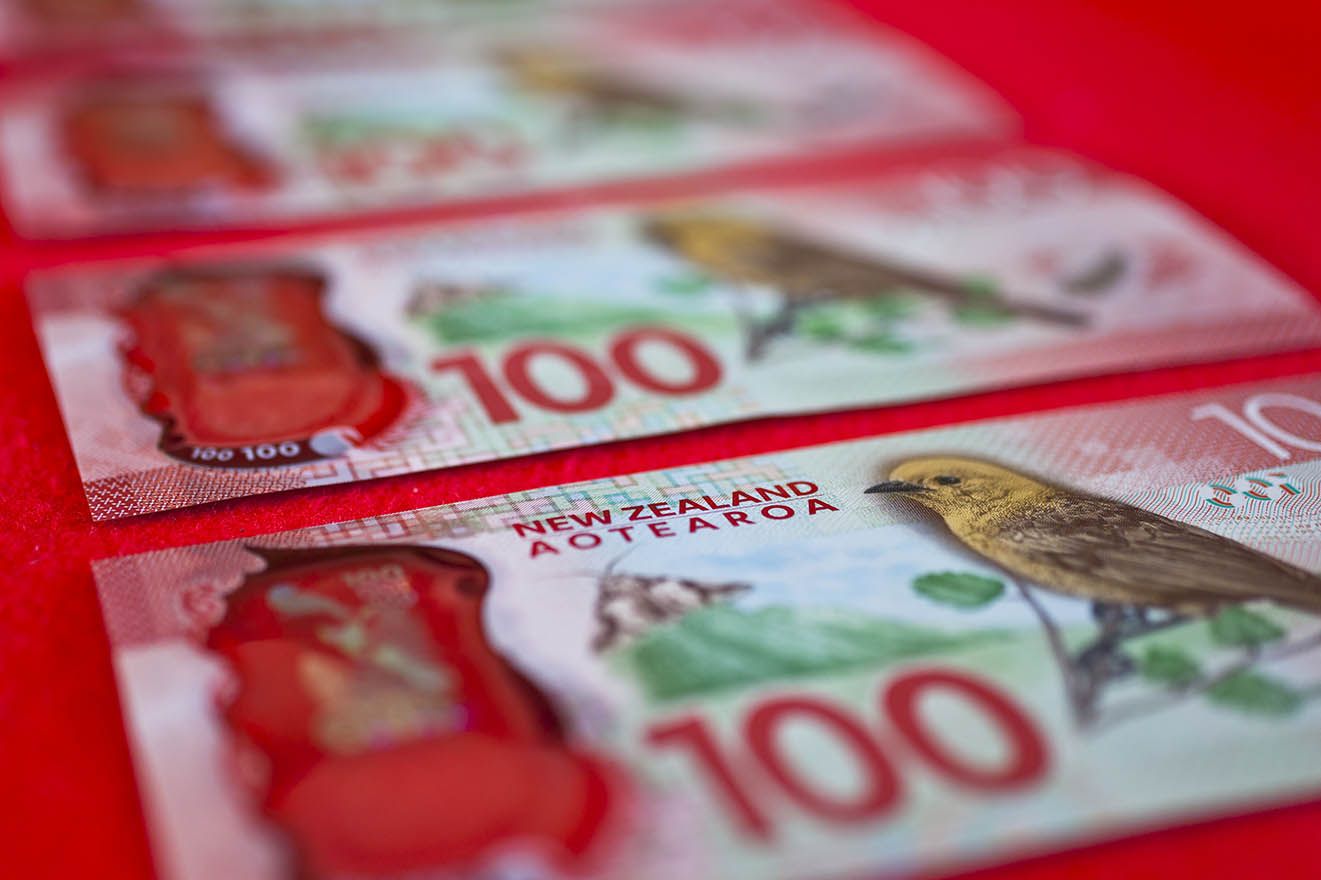New Zealand Dollar "Has More Room to Drop"
- Pound-New Zealand Dollar rate retains uptrend
- Coronavirus outbreak weighing on NZD
- Risk for AUD and NZD skewed to the downside say ING

Image © Adobe Images
- GBP/NZD Spot rate: 1.9935, +0.11%
- Indicative bank rates for transfers: 1.9237-1.9377
- Transfer specialist indicative rates: 1.9700-1.9756 >> Get your quote
The New Zealand Dollar is trending lower against the Pound and other major global currencies, with analysts saying much of the recent weakness in NZD lies with the market's cautious sentiment stemming from the neo coronavirus outbreak in China and that this trend could continue in the short-term.
"When risk aversion strikes, G10 looks typically to the dollar bloc for results. In other words, the price action in AUD, CAD, and NZD tends to follow the ebbs and flows of sentiment carefully," says Mark McCormick, Global Head of FX Strategy at TD Securities.
Risk sentiment has dipped sharply this week as global investors sold stocks and commodities in the face of the uncertainties posed by the Coronavirus outbreak. So-called commodity currencies such as the NZD and AUD have underperformed in the FX space, while the Yen, Swiss Franc and U.S. Dollar have benefited.
According to China's National Health and Health Commission, as of January 28, 31 provinces have now reported: 5974 confirmed cases, 1239 severe cases, 132 deaths, a total of 103 cases of cured discharges. There are 9239 suspected cases.
"Risk aversion has hit asset markets as the world reacts to news of the coronavirus. Uncertainty stands to demand a further risk premium of assets exposed to Chinese demand. That probably means interest rates stay lower for longer. China-intensive commodities stay under pressure and the re-rating story for commodity-linked currencies is postponed," says Chris Turner, Global Head of Strategy and Head of EMEA and LATAM Research at ING Bank.
Studies conducted by TD Securities show that trading either AUD or NZD "over the short-run offers a better link to the stress in the global system." i.e. the New Zealand Dollar is seen as a currency that is most likely to move in times of market stress; the kind we are currently seeing in response to the coronavirus.
The New Zealand Dollar-to-U.S. Dollar exchange rate is reflecting this sentiment, moving down to 0.6522 during the past 24 hours, which is the lowest level since December 11.
The overarching weakness in NZD means the Pound-to-New Zealand Dollar exchange rate maintains its 2020 trend of appreciation. Concerning the outlook for the GBP/NZD exchange rate, we see little evidence on the charts that this trend is yet to fade.

Momentum studies are positive and while the speed of gains being made by Sterling is unremarkable, the charts nevertheless advocate for further advances over coming days and weeks.
From a fundamental perspective, the future direction of travel in GBP/NZD, and the other NZD exchange rates, looks to be linked to how enduring the current stresses of coronavirus will last, and with no signs of the viral outbreak abating as of yet, we would expect this theme to hang over markets for some time yet.
"NZD might be the better risk-off trade, especially if much of the regional issues remain in Asia," says McCormick. "We think NZD has more room to drop."
The virus and the associated concerns regarding a slowdown in China's economy are undoubtedly contributing to the New Zealand dollar's downtrend. The current risk environment can be expected to put a damper on any buying opportunities. However, the currency is rather cheap. pic.twitter.com/GLhfXUaezP
— Marc-André Fongern (@Fongern_FX) January 29, 2020
"We continue to see AUD, NZD and NOK as the most exposed if market sentiment remains weak," says ING's Turner. "With our commodities team seeing larger downside to metals than oil prices (where OPEC may extend cuts versus a softer floor under metal prices), AUD looks the most vulnerable among these currencies."
Turner adds that as long as the situation will be seen as unresolved, the skew to both risk appetite and commodity prices remains on the downside.
"With G10 commodity currencies largely reversing all their December gains (at the time caused by anticipation of the phase-one deal), this currency segment is now as undervalued as it was prior to the December rally. Still, unless both risk sentiment and commodity prices stabilize, a sustainable rebound is unlikely at this point," says the analyst.




